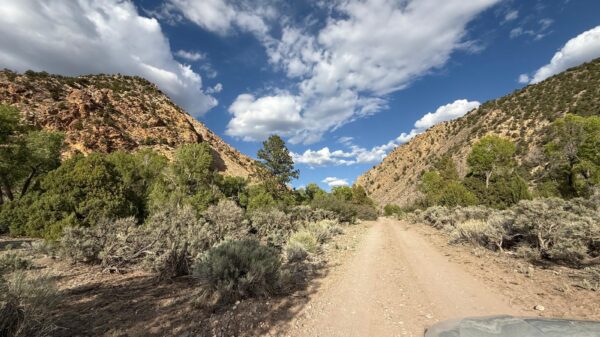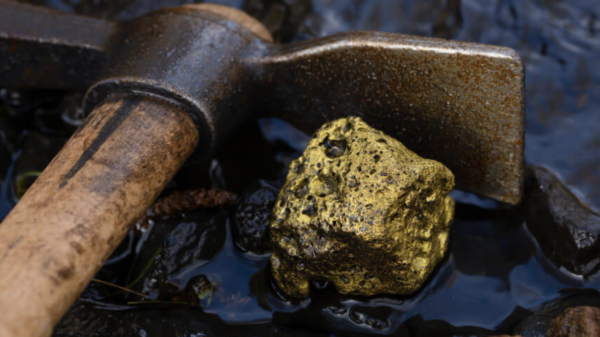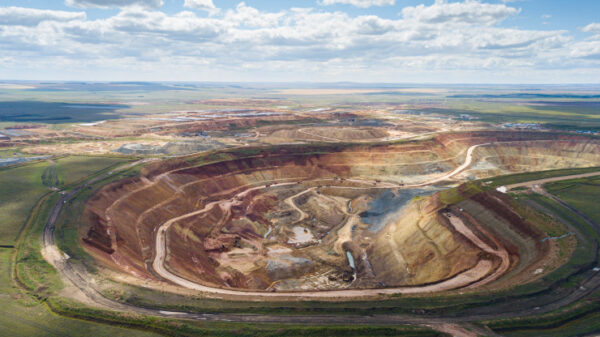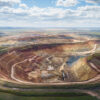The African country of Uganda announced it has discovered a gold deposit of 31 million tonnes of gold ore, with an estimated extractable pure gold gross of 320,000 tonnes and an estimated total value of USD$12 Trillion.
Solomon Muyita, the spokesperson for the Ministry of Energy and Mineral Development, claims that that over the past two years it has engaged in aerial exploration, and then geophysical and geochemical surveys and analysis. The intent behind this is to draw in big investors to help further develop the sector.
The majority of the Uganda gold deposits are in in Karamoja, in the country’s northeastern corner sharing a border with Kenya, and there were minority reserves in eastern, central and western area of the country.
Before the FOMO takes over, there’s an important piece of information to remember:
The resource game is dirty. How dirty?

From IMDB.
Bre-X is probably the best known example. Bre-X was a group of companies in Canada. It was involved in a major gold mining scandal when the company reported having discovered an enormous gold deposit in Indonesia in the 1990’s. Bre-X bought the site in March 1993 and in October 1995 reported finding huge amounts of gold. Its stock shot from its position as a penny stock to CAD$286.50 on the TSX, with a market cap of CAD$6 billion. It was gone by 1997 when the gold samples were found to be a fraud.
If all of that sounds familiar, it should. It was loosely adapted into the movie Gold, starring Matthew Mcconaughey in 2017.
And Bre-X is far from the only story. Barrick Gold (TSX.ABR) and Centerra Gold (TSX.CG) have well-documented human rights violations. These are just three successful companies. For every successful senior gold explorer there are five juniors that buy a claim based on historical data, fly a geophysicist over it in a helicopter, and give him a friendly bonus for his or her professional opinion about the mineralization there.
The company publishes that in a press release with a promise and a plan for drilling as long as it meets its fundraising requirements. The company raises money and five years later there’s still no drilling. But it needs money again because it’s not a cheap market. A little due diligence reveals that the company is usually two guys and a secretary renting office space on Howe Street.
If there’s one important tidbit of information to take away, it’s that you should never invest in a project or a company until there are drills in the ground.
There’s another side to this Uganda gold story, though, and that’s Uganda itself.
The country is regarded as one of the most corrupt, nepotistic places on earth. Corruption in Uganda is a major challenge for any company looking to do business. The police, the judiciary and procurement are areas where corruption risks are high and bribes are expected.
Without independent verification of the results of both the geophysical and geochemical studies, there’s simply no way to determine the veracity of the claim. Beyond that, the probability of Uganda having that much gold strains credulity.
According to statistics from the US Geological Surveys, 244,000 metric tonnes of gold, which is approximately 268,400 tonnes of gold, have been discovered worldwide. Of that number only 187,000 metric tonnes (205,700 tonnes) have been produced, leaving a remainder of 57,000 metric tonnes (62,700 tonnes) of reserves.
Uganda is claiming to have 31 million tonnes of gold ore, which means the country’s discoveries include more ore than the entire planet has yielded to date. This could be a simple mistake on behalf of a president who misread the report, or it could be a siren song for suckers.
There are definitely some reasons to believe there is gold in Uganda, but maybe not as much as stated – certainly not $12 trillion worth.
China is there already.
Wagagai, a Chinese company, invested $200 million and set up a mine in eastern Uganda and is expected to start production this year. Beyond that, the president is in the process of creating its own state-backed mining company, which would take a 15% stake in every mine, and investors will be expected to sign a production-sharing agreement with the government.
Let’s also consider the quality of the gold.
The two resource measurement classifications in play by which a country’s endowment can be confirmed are a proven mineral resource and a resource. A reserve is a known quantity of a resource after drilling and sampling. A resource is a broader term that includes identified material, which could possibly be of a lower grade and not certain to be economically recoverable.
How much of the latter is the Uganda gold claim?
It’s difficult to tell without the required data found through research, feasibility studies, exploration, and competent persons’ resource evaluation.
Here is a friend of Mugglehead’s take for more unbiased info:












